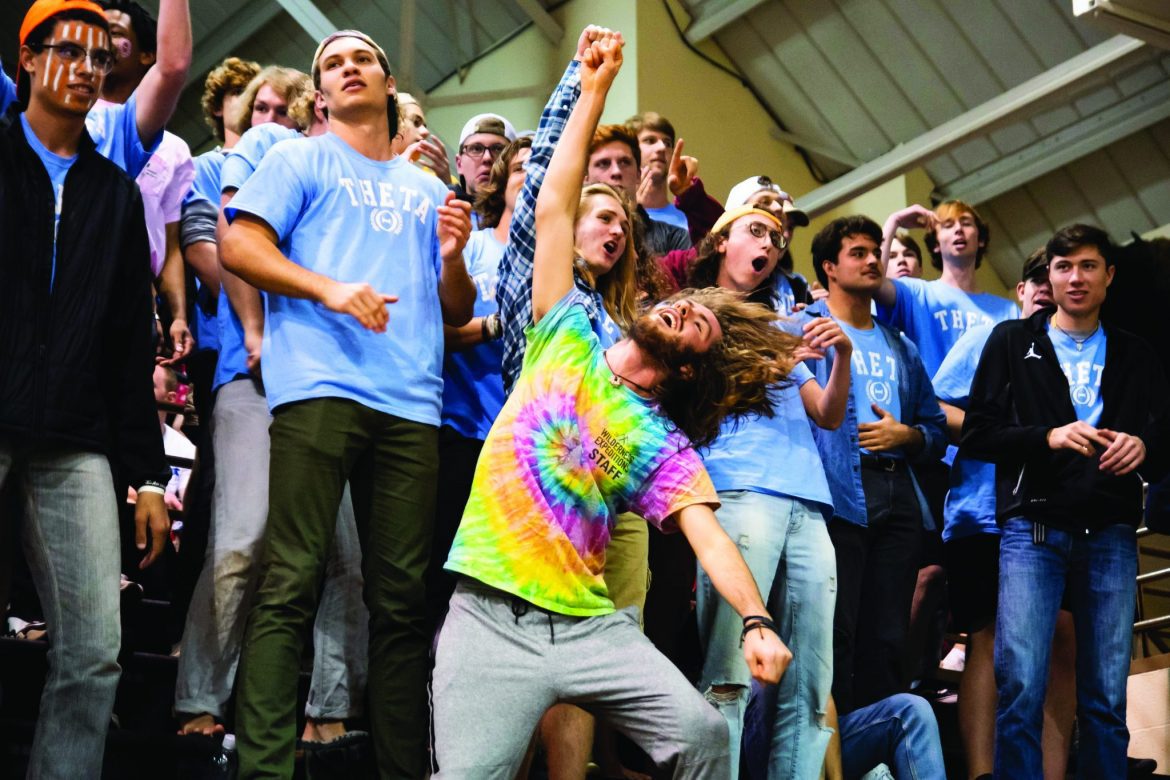On Thursday, Oct. 11, as Harding students prepared for their Fall Break, many received the anticipated invitation into a social club, but a long process took place behind the scenes between new members attending the first reception and donning the jersey.
First, the Interclub Council (ICC) gave a minimum number of new members to accept to each club. This minimum came from the number of active members, graduating seniors, sponsors and incoming freshman, according to Kara Abston, assistant dean of students.
“Club officers are always allowed to take more than the number provided by Student Life,” Abston said.
Men’s social club Chi Sigma Alpha originally received the minimum number 40, and senior Jack Allen, president of Chi Sigma Alpha, said the club had taken around 40 or more new members in the past few years. However, the club had 61 active members this fall, and their constitution prevented them from taking a class of more than 60 percent of their current size. The ICC lowered the minimum number to 36, but Chi Sigma Alpha ended the process with a class of 22 new members.
“Across the board, a lot of clubs are seeing smaller classes,” Allen said.
The first and second receptions welcomed anyone, but clubs invited prospective members to the third reception. For women’s social club Chi Omega Pi, they have the option of voting on who to invite, but for the past two years, they invited everyone who attended the second reception, according to senior Rebecca Johnson, president of Chi Omega Pi.
After the third reception, the members voted for 40 women via a Google Form including all eligible candidates. Since the minimum number for Chi Omega Pi was 38, the 38 women with the most votes made up the A list, and the women ranked 39 and beyond became the B list.
“It’s really quick and efficient,” Johnson said. “There’s no room for error. … You’re not relying on human computation, and all the data’s there.”
While the members voted, they also kept a Google Sheet in which members could comment on and advocate for prospective members.
Women’s social club Delta Nu used a different system of voting. During a slideshow of the prospective members, each current member voted yes, no or maybe. ‘Yes’ gave the candidate one point, ‘no’ took away two points and ‘maybe’ issued no points, according to senior Mariah McClellan, president of Delta Nu.
“When you’re in a club … and you spend a lot of time in there, you want to have a say in what goes on and who’s going to come in and represent that club with you,” McClellan said.
As the clubs ranked their prospective members, the inductees also ranked the top three clubs they would most like to join. Abston said the sequence of sorting students into clubs was an automated process through the Banner system, a higher education enterprise resource planning software.
“While the system is automated, our office reviews all input to ensure that all club information and student rankings are input correctly,” Abston said.
Senior Tanner Johnston, president of men’s social club TNT, said their club has used the same method of voting and ranking for many years because they have encountered very few problems with the process.
“We can only take a certain amount of new members each year in order to keep the size of the club regulated,” Johnston said. “This means every year we cannot take every person who is interested in our club.”
Club induction ceremonies were Oct. 21, and Club Week began the next day. The first club meetings with all new members will be Oct. 29 for women’s clubs and Nov. 5 for men’s clubs.
